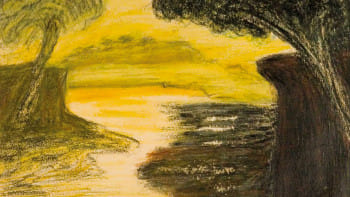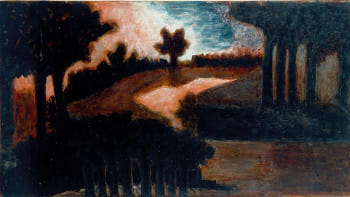A peripatetic poet’s pleasing musings
The title of this book suggests that it is based in Bengal but it really meanders deftly across time and space, more often than not in “mazy motion”.
Be a tree
Be a tree Get wet in sorrow’s shower and you’ll recover. From envy’s scorching sun gather strength
Rehman Sobhan’s recollections of the road he took towards December 16, 1971
The title of the first of Professor Rehman Sobhan’s two-part memoir suggests that it is about his “years of fulfilment”; the subject matter of its sequel therefore would be about the “untranquil” years that followed.
18th century British women writers and their Indian others
The postcolonial and feminist lenses Chatterjee deploys in his discussion of the works of the selected women writers seem to suit his analysis of the works of these "enlightenment" period British women writers, for their biases, fixations, and anxieties often come into view then.
Remembering Melville in his bicentenary year
Melville's critics, inevitably, panned him for what he had characterised self-deprecatingly and in his frustration as his fictional "botches," although his works were rarely that.
Rabindranath Tagore’s ‘Gora’: From notions of purity to an all-embracing Bharatborsho
Rabindranath Tagore’s Gora, written between 1907 and 1909, reveals the ways in which Tagore addresses the all-important issues of his time—national identity formation, the coming together of people over time, and obstacles or barriers put in the way of the progress of a nation. The novel captures Tagore’s fascination with envisioning a future based on human amity or moitri, one where the powerless and the dispossessed transcend the barriers of division and distrust.
Reflections on University of Dhaka convocation speeches: Part II
The second volume of Dhaka University: The Convocation Speeches, 1948-1970 (Dhaka University Publications, 1989), assembled assiduously by Emeritus Professor Serajul Islam Choudhury, is an important publication like the first one for anyone trying to understand Dhaka University’s extraordinary role in the genesis and identity formation of Bangladesh.
The University of Dhaka and the Birth of Bangladesh
In Dhaka University: the Convocation Speeches, a volume compiled with an introduction by Serajul Islam Choudhury in 1988, we read that DU was established by the British as a "splendid imperial compensation" for the Muslims of East Bengal (Choudhury, 26). They had wanted the current rulers of India to make up through it for the loss they felt they had suffered because of the reunion of Bengal in 1911.
Translating Rabindranath Tagore’s Song-Lyrics
In the song-lyric numbered 230 in Gitabitan, Rabindranath Tagore’s comprehensive compilation of such verse, we find his delight at capturing the loveliness of the world outside his window in a song-lyric: “I’ve caught uncatchable loveliness in rhyme’s binds—/The loveliness of a distant night-bird/Singing at a late hour of the night/ Wings crimsoned by ashoka flowers of a departed spring/And a heart filled with the fragrance of fallen flowers” (my translation).
Tagore Songs
Clouds pile upon clouds And the world darkens Why keep me waiting by the door then, All, all alone?
A. K. Fazlul Huq’s English Prose
In “Gandhi and Nehru: The Uses of English,” an essay written by Sunil Khilnani from the 2010 collection of essays edited by Arvind Krishna Mehrotra, A Concise History of Indian Literature in English, we are told about how the two leading figures of Indian independence not only used the English language to write back against empire, but played important roles in “the long, uneasy and interminable task of making English an Indian language.”
Bangabandhu’s writerly skills
Soon after Bangabandhu Sheikh Mujibur Rahman’s Oshomapto Atmojiboni (Unfinished Memoirs)came out in an English translation as well in the original Bangla in 2012, I heard at least a few people express their skepticism about the book’s authorship to me.
Shashi Tharoor Looks Through A Glass Darkly, For Democracy
This is a must-read book for anyone worried about the vulnerability of democracy in our time and the rise of authoritarian governments everywhere.
A Bangladeshi Babu Like No Other
Numair Atif Choudhury’s Babu Bangladesh is a tour de force of a novel. Exuberant, extravagant, learned, zany, ingenious, whimsical, irreverent and provocative, this is a work of amazing merit.
Poetry of Nirmalendu Goon
How Freedom Became Our Own Word
The road to DU’s opening day
In these pandemic-plagued times, ceremonies commemorating the beginning of the celebrations of the University of Dhaka (or DU) that were to culminate in July 1, 2021 have been scaled down drastically; the chances of alumni and well-wishers of university students and faculty members thronging the campus on July 1, 2020 to inaugurate the year-long events have all but gone.



















